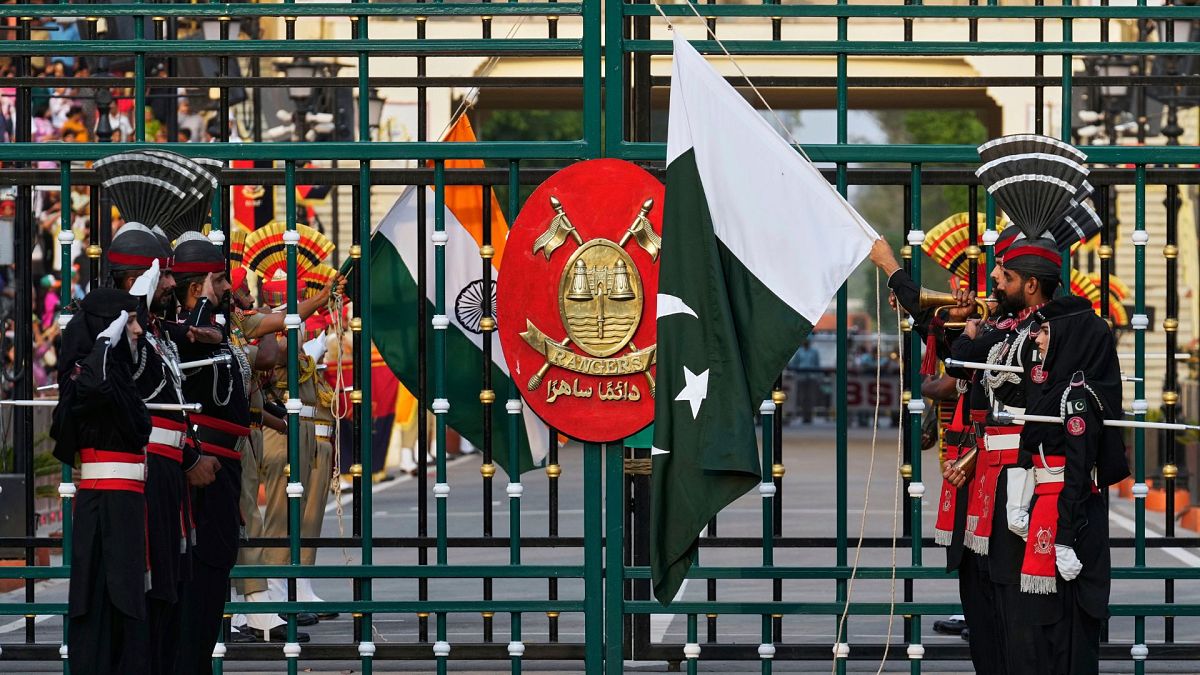Iran's Foreign Minister Visits Pakistan Amid Rising Tensions with India










2025-05-05T13:16:22Z

In a significant diplomatic effort to mediate rising tensions between Pakistan and India, Iran’s Foreign Minister, Abbas Araghchi, has arrived in Islamabad. This visit comes in the wake of a tragic attack on April 22 that resulted in the deaths of 26 tourists in Indian-administered Kashmir, an incident that has escalated hostilities and sparked accusations from India against Pakistan for its alleged involvement.
Araghchi's diplomatic mission is notable as it marks the first time a foreign envoy has engaged with Pakistan since the attack, signaling Iran's willingness to play a mediating role amid the escalating conflict. Tehran's offer of assistance is crucial, given the historical animosity and complex relationship between the two nuclear-armed neighbors. Both countries have a long-standing rivalry, with Kashmir being a focal point of discord, leading to two of the three military conflicts they have fought since their independence.
In response to the rising tensions, the Pakistani military remains on high alert. Information Minister Attaullah Tarar has revealed that there is "credible intelligence" indicating a potential strike from India, further heightening fears of military confrontation. Pakistan has steadfastly denied any involvement in the recent killings and has expressed a willingness to cooperate with an impartial international investigation into the attack. However, this offer has not yet been accepted by New Delhi, leaving the diplomatic waters murky.
Pakistan's Foreign Minister, Ishaq Dar, who is scheduled to meet with Araghchi, has welcomed Iran’s willingness to mediate. He has also engaged in discussions with various international leaders over the past week, including U.S. Secretary of State Marco Rubio and Russian Foreign Minister Sergey Lavrov, in an effort to garner support for Pakistan’s position.
During a press briefing in Islamabad, Dar emphasized Pakistan's commitment to restraint, stating, "We will not be the first to take any escalatory step." However, he also issued a stern warning, asserting that any act of aggression from India would be met with a robust defense of Pakistan's "sovereignty and territorial integrity."
The situation escalated further when Dar accused the Indian Air Force of attempting to breach Pakistani airspace on April 28, an allegation that was met with a swift response from Pakistani fighter jets, which he claimed successfully forced the Indian aircraft to retreat. India has yet to respond to these allegations, adding another layer of tension to the already strained relations.
As tensions continue to simmer, both nations have taken steps to expel each other's diplomats, and segments of their airspace have been closed off, signaling a deterioration of ties. On April 29, Minister Tarar led a group of journalists to the remote village of Bella Noor Shah, located near Muzaffarabad in Pakistan-administered Kashmir. This visit was in response to Indian claims of the presence of a militant training facility in the area. However, residents assured the journalists that no such camp existed, with Tarar stating, “It is clear there is no truth to the Indian claim.”
Amid this backdrop of escalating hostilities, Pakistan's military also announced a notable achievement in its defense capabilities, successfully test-firing the short-range Fatah surface-to-surface missile, which boasts a range of 120 kilometers. This test, the second in recent days, follows a medium-range missile launch on Saturday and was conducted from an undisclosed location. As is standard practice, the missile was not aimed at India, as such missiles typically fall into the Arabian Sea or the uninhabited deserts of southern Balochistan.
 Malik Johnson
Malik Johnson
Source of the news: Euronews